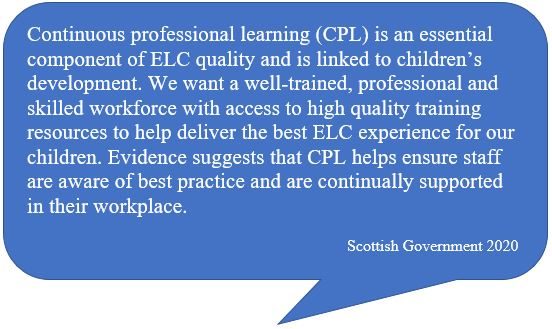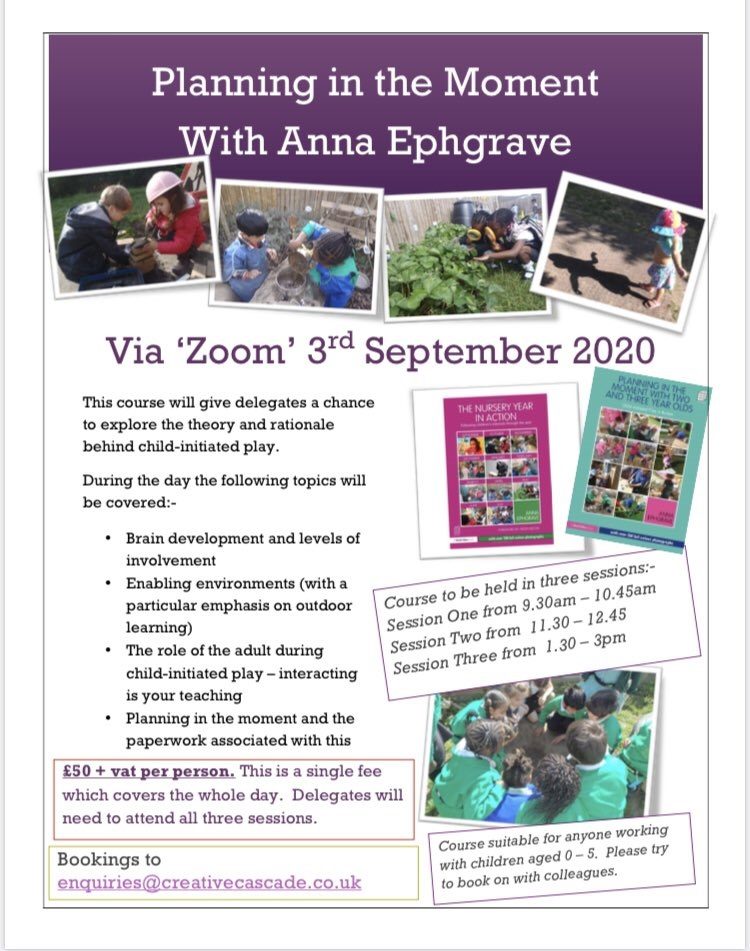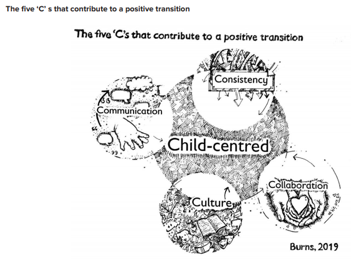‘Physical spaces, both outside and indoors, should be constantly reviewed to incorporate a wide range of responsive, familiar, and exciting new play opportunities.
(Realising the Ambition 2020)
National guidance and quality framework documents remind us how important it is to regularly reflect on the quality of the spaces we offer our children to support their learning through play. 

To help teams with this self-evaluation work, Falkirk Council Early Learning team and NHS Forth Valley Speech and Language therapists have worked together to bring the wide and vast variety of national and local guidance and information available together into one, easy to use, audit tool.
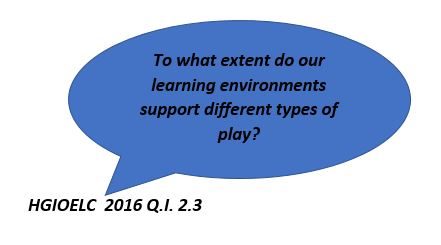
The Falkirk Early Level Self-Evaluation Audit: Spaces tool can be used in both ELC and P1 settings, to support teams with their planning, evaluation, and moderation of high-quality play spaces. The tool draws on all the resources already available to practitioners in Falkirk, including Realising the Ambition, enabling environments, literacy rich environments, visual communication audit tool, loose parts play, ECERS-E (2014), Kym Scott’s environment audit (2019), Marvellous Mealtimes audit, Falkirk Froebel Family advice etc. It has been split into four sections in line with Falkirk Council’s Play is the Way practitioner guidance about designing environments to support child-initiated learning.
- Section A – Enabling environments indoors and outdoors
- Section B – Social Play
- Section C – Discovery/Investigatory Play
- Section D – Creative Play
Within each section, some suggestion about areas of provision which might be found in each zone are given but these are given only as a starting guide. Each setting should design their play spaces in the way which best suits their setting’s vision, available physical space and, the needs and interests of their learners. Children themselves should play an active, participatory role in designing and improving their play spaces.
Falkirk Council staff and our private partner colleagues can access the Falkirk Early Level Self-Evaluation Audit: Spaces tool by downloading it from the Self- Evaluation for Self-Improvement document store within the Leadership and Management section of the Falkirk Early Learning Glow page.
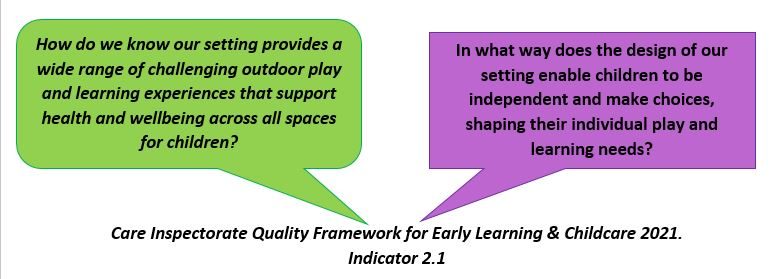
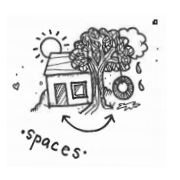
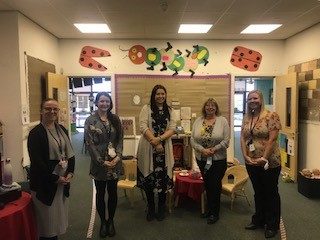
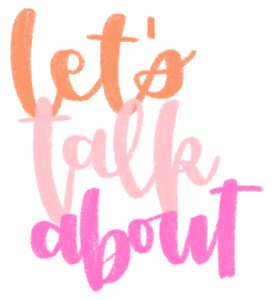 In Falkirk, we know that play really is the way for our young children. By providing lots of opportunities for free play in high quality environments and adopting a playful approach to teaching we inspire, and motivate, our children in their learning each and every day.
In Falkirk, we know that play really is the way for our young children. By providing lots of opportunities for free play in high quality environments and adopting a playful approach to teaching we inspire, and motivate, our children in their learning each and every day.
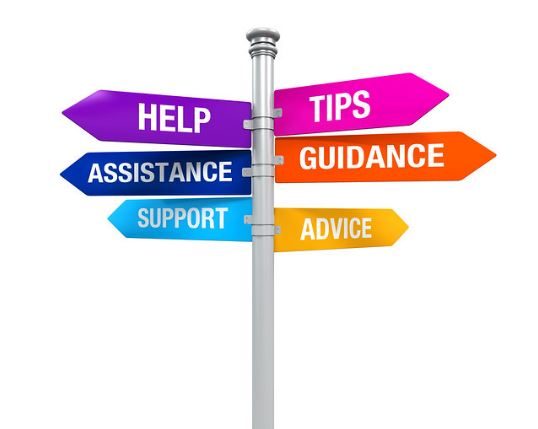

 Check out the second of our our blogs for anyone starting out with play pedagogy for the first time, from those who’ve been there before. This time advice from Frances McMahon who has recently joined the ELC cnetral team after teaching in P1.
Check out the second of our our blogs for anyone starting out with play pedagogy for the first time, from those who’ve been there before. This time advice from Frances McMahon who has recently joined the ELC cnetral team after teaching in P1.


 My name is Rachel Keane and I have been teaching within Falkirk Council for 8 years. For the past five years I have taught between primary 1 and primary 2. Three years ago we embraced Play is The Way. I thought I would share some of the things I wish I’d known at the beginning of our play journey for anyone who is starting out with play pedagogy for the first time this year.
My name is Rachel Keane and I have been teaching within Falkirk Council for 8 years. For the past five years I have taught between primary 1 and primary 2. Three years ago we embraced Play is The Way. I thought I would share some of the things I wish I’d known at the beginning of our play journey for anyone who is starting out with play pedagogy for the first time this year. Try to keep your provocations open ended. Model to the children what small world spaces could look like and allow the children to explore materials and create these spaces themselves. Not only does this free up your time in morning to complete other tasks but it encourages children to take the lead in their learning, developing motor skills, problem solving and their imagination.
Try to keep your provocations open ended. Model to the children what small world spaces could look like and allow the children to explore materials and create these spaces themselves. Not only does this free up your time in morning to complete other tasks but it encourages children to take the lead in their learning, developing motor skills, problem solving and their imagination.
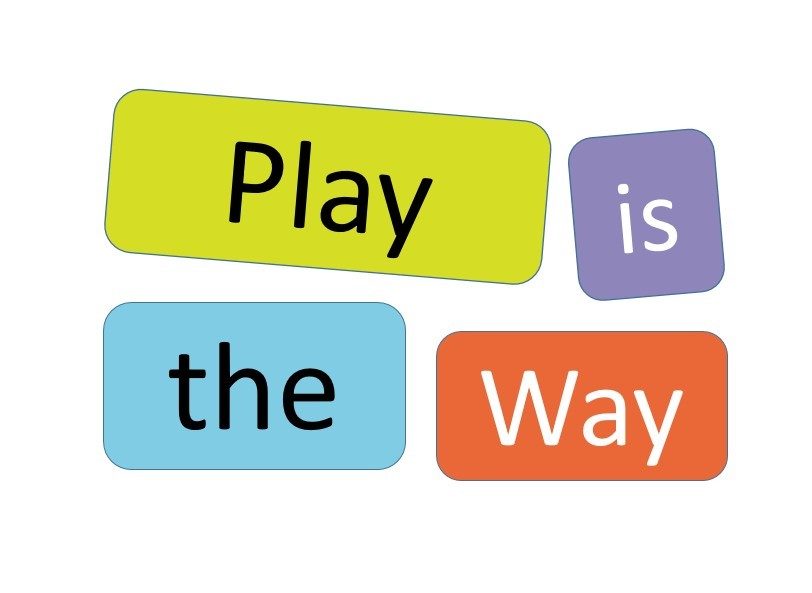

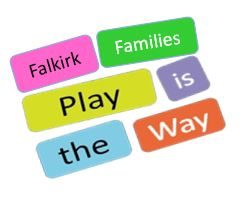 Our central team have also produced materials to support settings share the rationale behind Play is the Way with families and give examples of what this might look like in practice, particularly in P1 classrooms. These
Our central team have also produced materials to support settings share the rationale behind Play is the Way with families and give examples of what this might look like in practice, particularly in P1 classrooms. These  52 P1 and P2 teachers completed a short course with Professor Deirdre Grogan from Strathclyde University to help them embed high quality Play pedagogy in practice in their classrooms.
52 P1 and P2 teachers completed a short course with Professor Deirdre Grogan from Strathclyde University to help them embed high quality Play pedagogy in practice in their classrooms.



 The projects aimed to provide smoother pedagogical transitions for children as they move from one stage to the next whilst using high quality play and playful teaching to improve children’s outcomes in early literacy and maths.
The projects aimed to provide smoother pedagogical transitions for children as they move from one stage to the next whilst using high quality play and playful teaching to improve children’s outcomes in early literacy and maths. 99% evaluations returned stated that the project had met these aims. There was also a significant increase in practitioners’ confidence in the delivery of developmentally appropriate early literacy and maths learning experiences for young children. This
99% evaluations returned stated that the project had met these aims. There was also a significant increase in practitioners’ confidence in the delivery of developmentally appropriate early literacy and maths learning experiences for young children. This 

